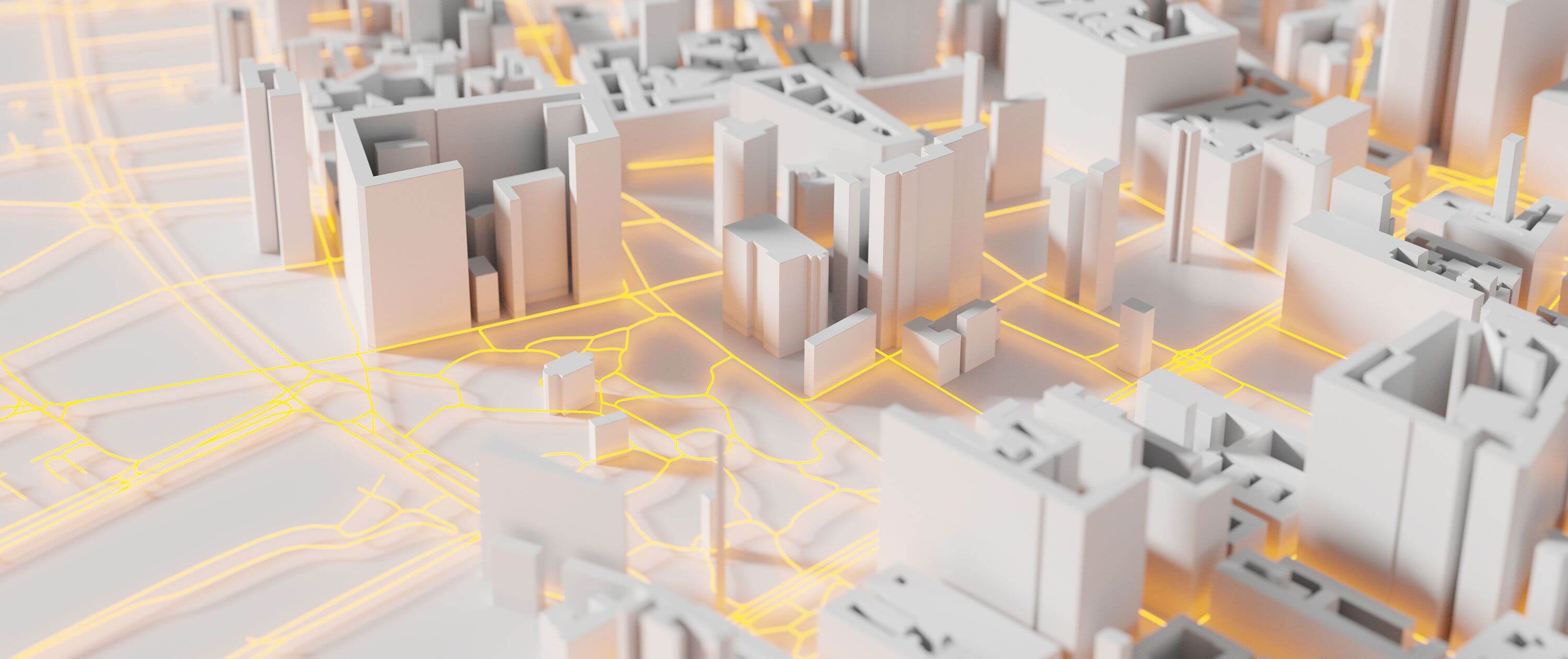It’s a connected digital workplace
Smart spaces have one common element: interconnectedness. It does not matter whether the smart space is a digital workplace such as an office, an automated factory floor or an entire smart city. All these smart spaces take the first steps towards intelligent capabilities thanks to the streamlined connectivity provided by the internet.
In turn, smart spaces are enabled by intelligent devices connected to the internet. IoT devices enable enterprises to gather data on a massive scale, creating vast repositories of real-time information thanks to the wide and always-on internet pipes so common today. Enter the world of big data.
Data and automation equals smarter working
Big data presents a processing puzzle: crunching vast amounts of data to draw meaningful conclusions is expensive and time-consuming. How does the digital enterprise utilise this influx of data to improve working conditions and productivity? The answer lies in artificial intelligence and machine learning.
These pillars of automation can help enterprises draw automatic, instant insights from IoT data to enable workplace processes that are simply smarter. Alongside the benefits of a connected workplace, these insights have the potential to transform how work is performed both in the office and on the factory floor.
The real-world impact of connectivity
Connectivity and automation can benefit a variety of environments. Let’s take a look:
- Intelligent buildings. For office-based enterprises, the performance of the buildings where work takes place can dramatically affect productivity and the bottom line. For example, by analysing desk and building utilisation an enterprise can dramatically cut the cost of its office space, while simultaneously ensuring employees are interacting in spaces that support collaboration when needed.
- Automated warehouses. The world still depends on work taking place within industrial settings such as the factory floor and inside warehouses. These settings are rapidly becoming smart spaces, as IoT transforms industrial settings. Always-on awareness of resource utilisation, stock levels and equipment location – thanks to IoT – enhances efficiency, reduces costs and boosts productivity.
- Smart cities. The broader context in which work takes place matters too, you cannot isolate a smart workspace from the wider environment. Smart cities are therefore key to achieving smarter working. Big data and automation enable cities to become smart spaces, making it easier for city authorities to plan in a way that enables quick commutes, relaxing environments and high productivity.
Smarter working courtesy of smart spaces can be broadly enabled by advanced tech including IoT, emerging connectivity tech such as 5G and data-taming computing tech including AI and machine learning. But what steps should the typical enterprise take to engage with smart spaces?
It’s a fundamental change in working
Enterprises will benefit from understanding that smart spaces are rapidly changing the shape of workplaces. It’s by no means the first time, technologies such as e-mail have had a massive impact on the way work is done.
Grasping the potential of smarter ways of working requires both in-depth knowledge of the technical capabilities of today’s tech while also understanding how enterprise processes can benefit from connectivity, automation, and insight.
That said, enterprises typically focus on their core business and do not often have the resources to explore intricate, fast-moving technological solutions. Many are employing an enterprise-spec technology partner who can build a smart team of software experts ready to take on any innovation challenge.
Contact us to find out how IoT, big data and AI can help your workforce take advantage of smart spaces.

